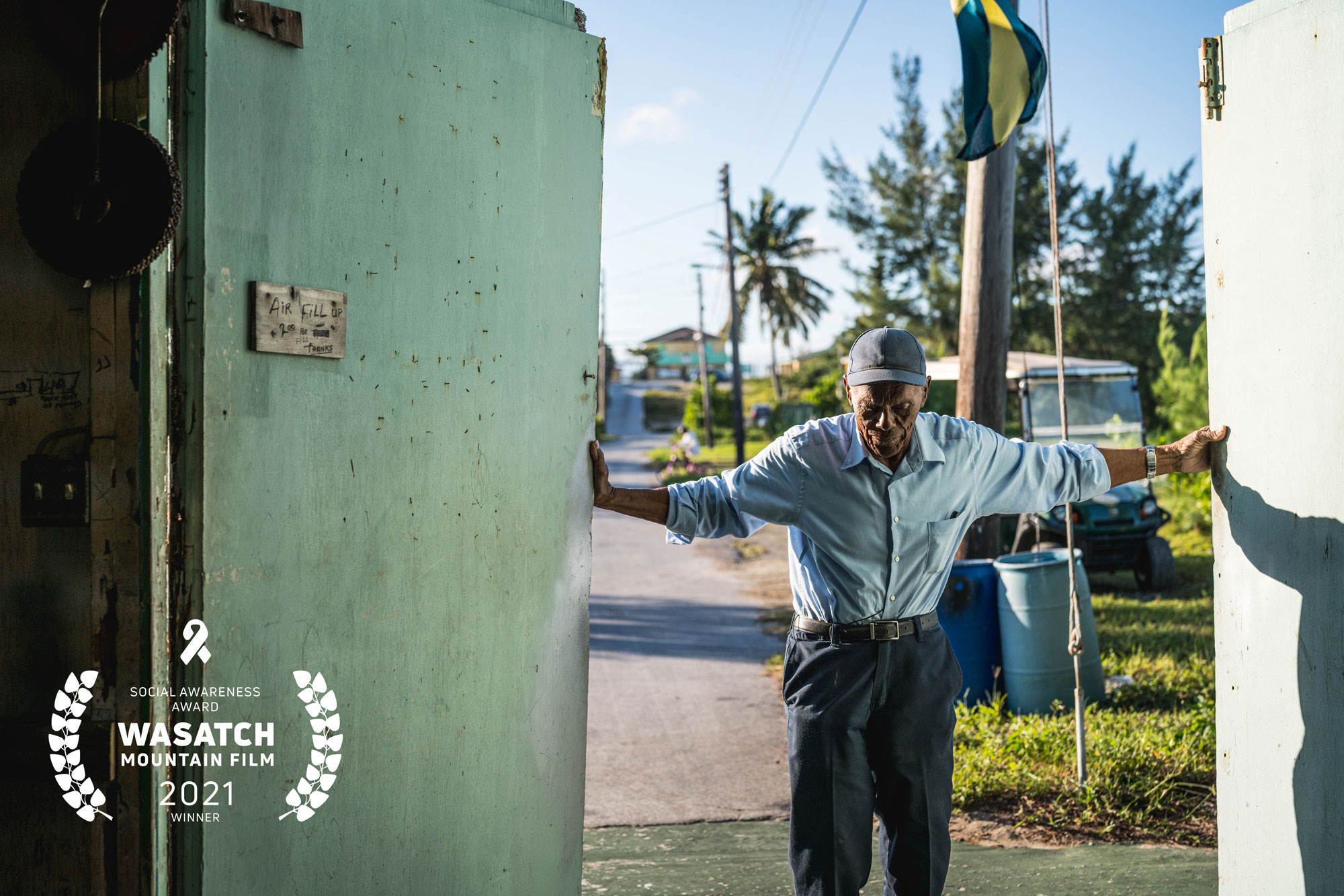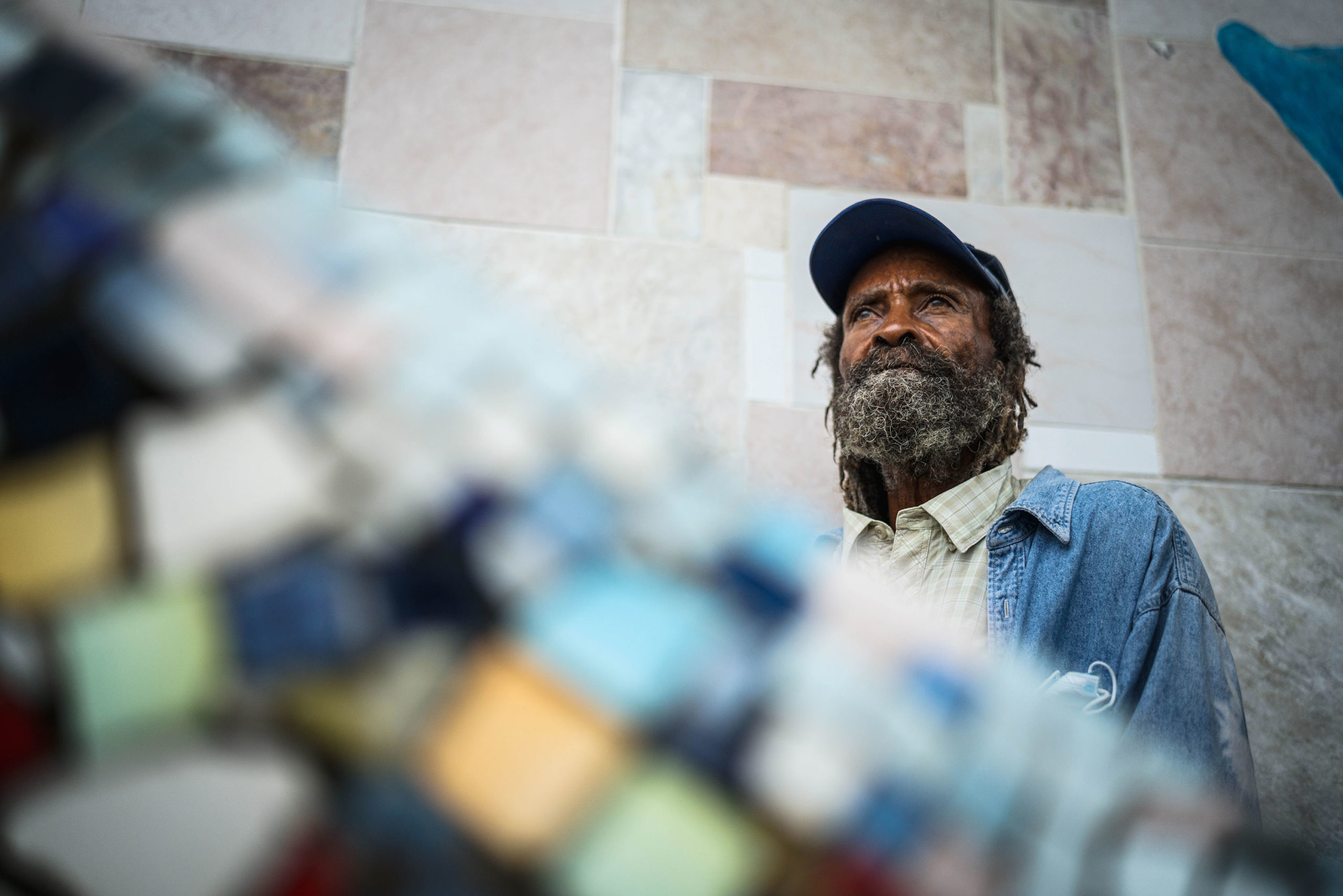The American Museum of Fly Fishing partnered with Simms, Costa, and Shannon Vandivier and his team at Cold Collaborative to create a film that tells the extraordinary story of Ansil Saunders, a legendary Bimini bonefish guide. Martin Luther King Jr. found a friend in Saunders. Just four days before his assassination, Dr. King was sitting in Ansil’s boat, sharing psalms and working on “I’ve Been to the Mountaintop”—his final speech. In Mighty Waters, Ansil Saunders visits the spot where he’d taken MLK that day and discusses the global change he’s seen and hopes to see in the world. Mighty Waters was selected for the 2021 F3T film tour, the Mountain Film Festival, and won the Social Awareness Award presented by the Wasatch Mountain Film Festival.
Mountain in the Mangroves: Martin Luther King And His Bonefish Guide
By Sam Lungren, Courtesy of Meat Eater
In 1968, four days before he was gunned down on his hotel room balcony in Memphis, Tennessee, Dr. Martin Luther King Jr. lounged in the bow of a skiff, savoring the solitude of the remote mangrove labyrinth surrounding Bimini Island.
A little-known footnote to his short but monumental life, Dr. King traveled to the tiny Bahamian atoll several times to get away from the noise and controversy of the United States in that era. He came to write, walk, relax, meet people, and spend time with his mentee, Bahamian civil rights activist, boat builder, and legendary bonefish guide, Ansil Saunders, now 88.
That final trip, Dr. King worked on his iconic “I’ve Been to the Mountaintop” address in a backwater known as Bonefish Creek on Saunders’ boat. He delivered that speech the night before his murder.
“The last time he been in the boat with me, he was like a different person,” Saunders said. “He knew that something was going to happen to him. He wasn’t gleeful like we normally be. He was like he was in the space, like in a dream, like he was looking far into the future. Like there was something unfinished that he was thinking about.”

Saunders is the subject of the forthcoming Fly Fishing Film Tour feature “Mighty Waters” by Cold Collaborative, premiering on March 10. In an interview with MeatEater, director Shannon Vandivier said that, as an angler, he was shocked he hadn’t previously heard about this intersection between fly fishing and the great civil rights leader.
“It’s very surprising to find out that Ansil’s story has never been told before and it’s shocking to find out that Martin Luther King, there’s this whole other part of his life,” Vandivier said. “You’d think that you would know if Martin Luther King liked fishing or liked being outside, you know? It’s interesting to me that we’ve never heard about that.”
However, upon closer inspection, Vandivier said it makes a lot of sense that a philosopher and leader like Dr. King sought seclusion.
“If you think about Martin Luther King and you think about what he did and what he stood for, you think, man, it didn’t just come naturally to him,” Vandivier said. “I mean, maybe it did, but to some degree you have to spend a lot of time in solitude and a lot of time really wrestling with the right way to approach it and the right way to present it and spending a lot of time writing. It’s one thing to see a guy on a podium delivering a very powerful speech, but there’s so much more of a human story here as it pertains to Martin Luther King, but equally so as it pertains to his friendship with Ansil.”
Saunders’ distinction goes far beyond simply poling a skiff for one legendary leader. He fished with Muhammad Ali and met the Queen of England twice. He claims to have invented the idea for the Super Bowl while guiding NFL Commissioner Pete Rozelle several times in the late ’60s—and he owns the first football played in that game to prove it. He guided an angler to a line-class world record 16-pound bonefish in 1971 that still stands today. Saunders played a major role in the Bahamas’ independence from Great Britain in 1973.

In 1954, inspired by the story of Rosa Parks and Dr. King’s sit-in movement, Saunders set out to change similar segregationist policies in the Bahamas. The Bimini Big Game Club, and the other hotels and lodges on the island, did not allow Blacks to dine. Twenty-one-year-old Saunders went and sat in the club’s restaurant during the lunch hour every day for 41 days straight without being served.
“I paid the price of being embarrassed with a lonesomeness with even your own people,” Saunders said. “The waiters and waitresses saying things to you, to get out of there. And they never served me. And [I’d] go back fishing on an empty stomach because I was trying to get that broken.”
Saunders drew strength watching evening news coverage of Dr. King leading marches in the American South.
“If they can go through that and getting locked up and stuff like that and jail, you know, and getting their heads beat in, I said to myself, ‘At least I don’t get arrested, you know? I’m going to fight this with Dr. King.’”
A month and a half later, the owner of the Big Game Club was hosting officials from the government seat in Nassau.
“So, I told some of the boys from around here that if they go with me tonight, I’ll buy them all dinner,” Saunders said. “We went in there and I said, ‘We either get served in here tonight or else.’ I was willing to go to jail. And they fed us like we were the King of England. From that day forward, we was able to eat in there anytime we felt like.
“To make them change their policy made me feel like a giant.”
His successful, peaceful movement attracted the attention of Congressman Adam Clayton Powell, who later introduced Saunders to Dr. Martin Luther King Jr. They first went out in the boat together in 1964.
Saunders and King spoke of injustice in the Bahamas. Blacks were second-class citizens, denied access to many opportunities, not the least of which being education. They talked of oppression from far-away England.
“In the days Dr. King was here, this was a colonial country,” said Ashley Saunders, Ansil’s brother. “And it’s true, we had nobody to identify with in this country, except Dr. Martin Luther King. He was very important for us in achieving independence.”
Ansil agreed: “We didn’t have the understanding to do it until Dr. King opened our eyes. We think bigger by listening to him. Had he not come to Bimini or the Bahamas at that time in history, our independence would have been delayed for a long time.”

With Dr. King’s encouragement, Saunders became increasingly involved in politics and civil rights. He founded the Bahamas Boys and Girls Club to “level the playing field” for young Blacks. He joined the Progressive Liberal Party and ended up serving as its chairman for 14 years. During that time, he became close personal friends with Lynden Pindling, who would become the Bahama’s first Black leader in 1969 and its first-ever Prime Minister. Pindling led the country through its independence in 1973, all the way until 1992, and is widely viewed as the father of the nation.
When the Bahamas finally broke from Great Britain, Saunders masterminded the independence celebration on Bimini, which included three paratroopers jumping from a plane miles in the air, painting the sky with smoke in the colors of the new Bahamian flag: gold, black, and aquamarine.
For his achievements and contributions to the Commonwealth of The Bahamas and the sport of fly fishing, Ansil Saunders will be inducted into the Fly Fishing Hall of Fame later this year. The American Museum of Fly Fishing partnered on the film, along with Costa and Simms. Woods King (no relation) is the chair of the museum’s outreach council and said that his organization was thrilled to participate in the telling of this story.
“I think this is an area where the museum of fly fishing might’ve fallen short a little bit in uncovering and sharing the history of stories of people of color and fly fishing,” Woods King told MeatEater. “This is something that, especially in this day and age, is really important and interesting to a lot of people. The stories about Ansil with Dr. Martin Luther King Jr. and others hit home on a lot of different levels. His creativity and his leadership are really special. This is something [that] transcends fly fishing into the mainstream. I’m hoping that a lot of people that wouldn’t necessarily be watching the Fly Fishing Film Tour might see this film and get more involved in the sport and understand more about Ansil.”
Vandivier, the director, said that his film should not be read to mean that Dr. King was some sort of secret fisherman.
“King wasn’t even that interested in fishing, he mostly just wanted to get out there to those mangrove flats just to find that tranquility and find some clarity,” Vandivier said. “I’d give one of my limbs to have a photo of Ansil and Martin Luther King together. Poor guy didn’t realize that might be important one day. I know that MLK had gone out deep sea fishing on one of his public trips.”
But, he said, both Saunders and Dr. King expressed a sentiment that any angler can appreciate: you get to know someone better out on the water than just about anywhere else.
“When you spend time in the boat out in that mangrove, that really becomes a friend. He can becomes a friend. He really was one of a kind,” Saunders said. “I had Dr. King in the boat to have some real quiet place to think. He would just put his hand under his chin, and you could see he was writing something in his head.”
On that final trip to Bimini the same week he died, Saunders said Dr. King was well aware of the danger that awaited him should he return to Memphis to support the black sanitary public works employees who were on strike for equal treatment. He knew about the FBI intelligence. He knew about the death threats. Dr. King spoke to Saunders of his own eulogy, even suggesting an almost-willingness to be martyred. He brought it up again in his final speech the night before he died at age 39.
“Well, I don’t know what will happen now; we’ve got some difficult days ahead,” Dr. King thundered from the podium. “But it really doesn’t matter with me now, because I’ve been to the mountaintop. And I don’t mind. Like anybody, I would like to live a long life—longevity has its place. But I’m not concerned about that now. I just want to do God’s will. And He’s allowed me to go up to the mountain. And I’ve looked over and I’ve seen the Promised Land. I may not get there with you. But I want you to know tonight, that we, as a people, will get to the Promised Land. And so I’m happy tonight; I’m not worried about anything; I’m not fearing any man. Mine eyes have seen the glory of the coming of the Lord.”
Feature images via Shannon Vandivier.
Watch “Mighty Waters” in the Fly Fishing Film Tour and follow Cold Collaborative for future screenings.






















